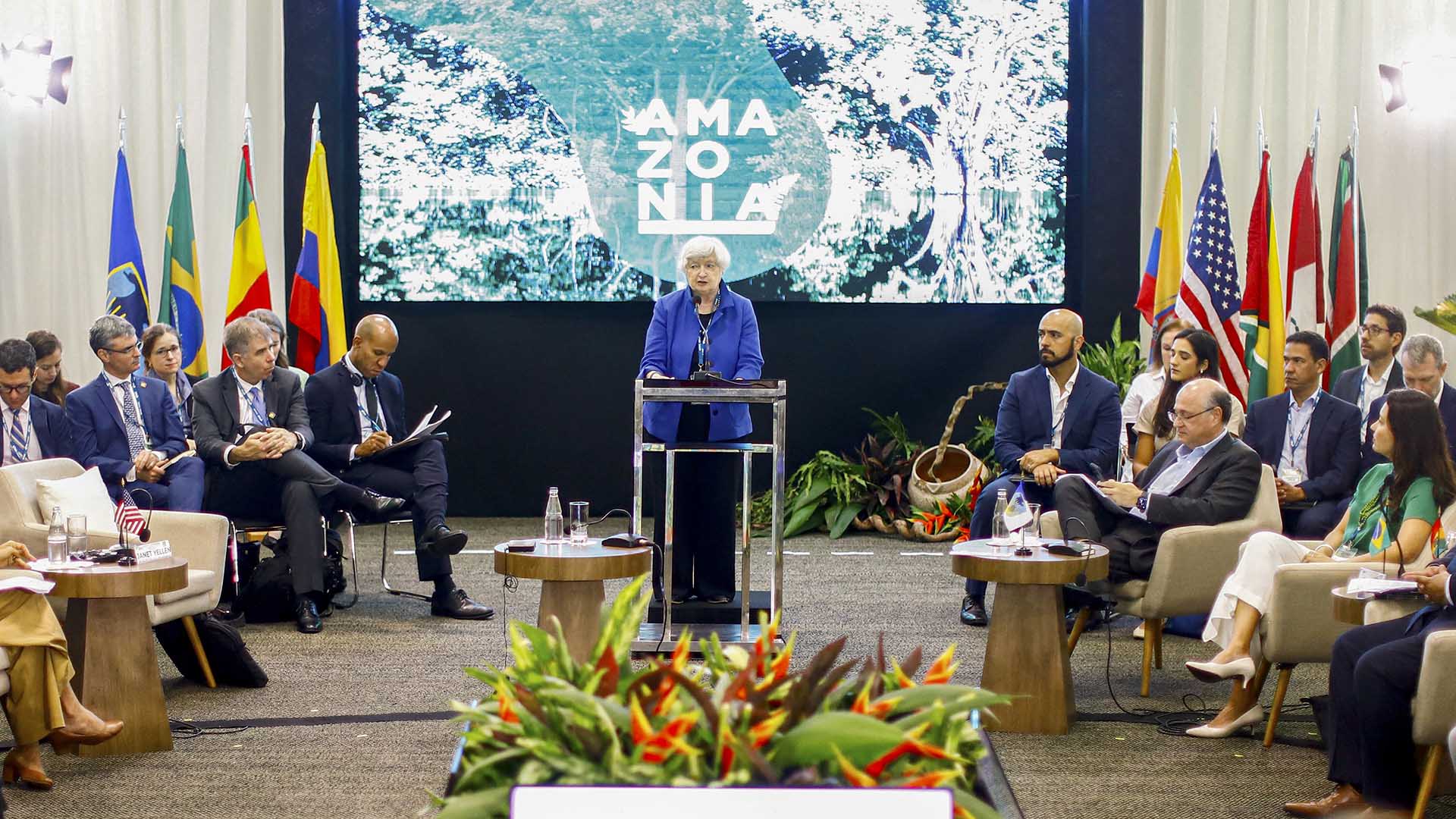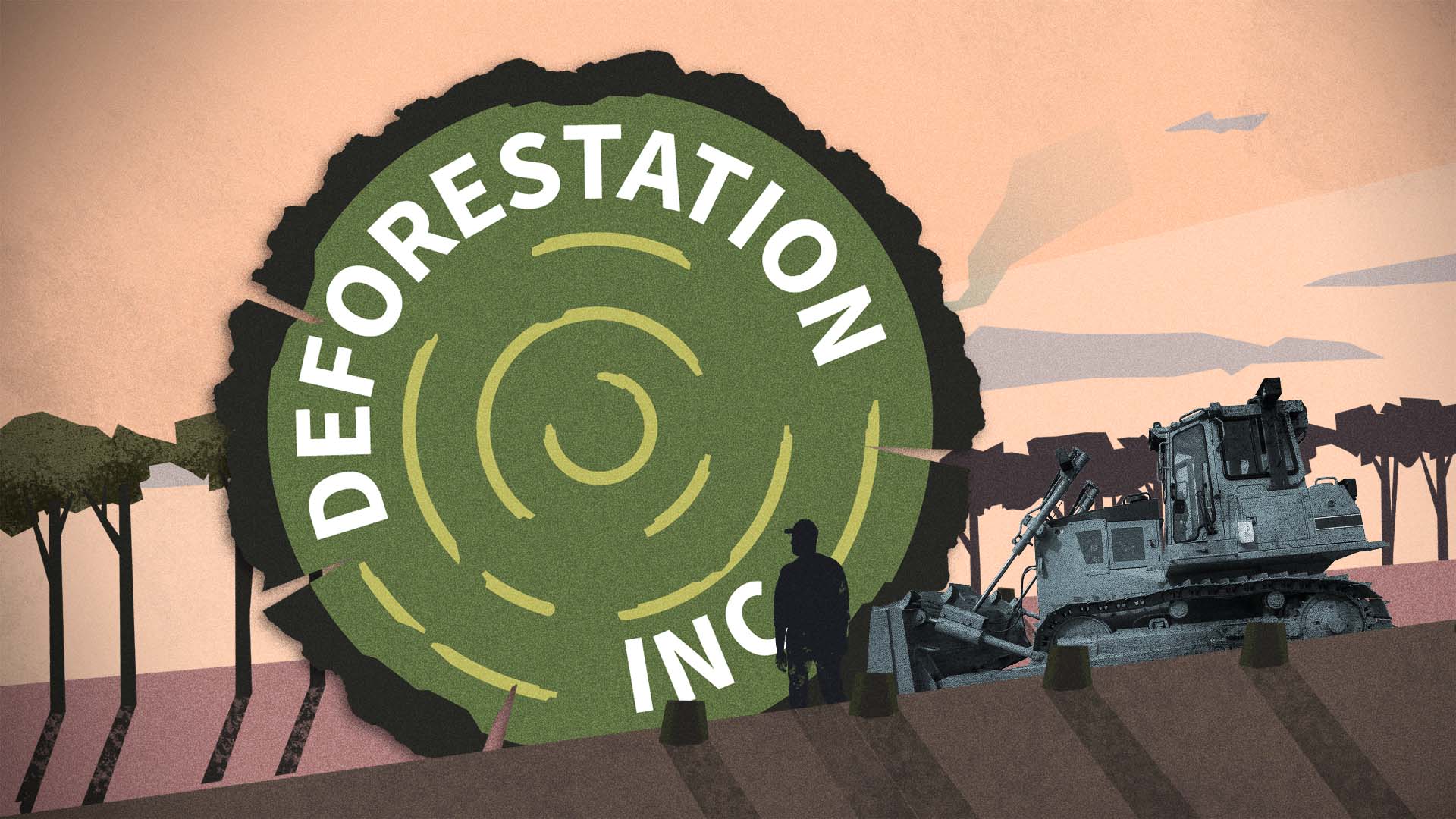DEFORESTATION INC
New US Treasury plan targets criminal groups profiting from the destruction of the Amazon
A group of six countries has agreed to work together to shut down money laundering operations tied to logging, mining and wildlife harvesting wreaking havoc on the rainforest.

The United States will work closely with five South American countries to crack down on criminal networks that profit from environmental crimes in the Amazon rainforest, U.S. Treasury Secretary Janet Yellen announced at a recent roundtable in Belém, Brazil.
The new initiative, involving Brazil, Colombia, Ecuador, Guyana and Suriname, will seek to disrupt illicit financial flows stemming from illegal logging, mining, and harvesting of wildlife and plants, according to the U.S. Department of Treasury. Under the cross-border plan, Treasury said it would run “follow the money” training for financial intelligence units and law enforcement in the region to help authorities pursue money laundering investigations against criminal organizations, drug cartels and other bad actors.
“Nature crimes generate hundreds of billions of dollars of illicit revenue while harming local communities and threatening critical ecosystems,” Yellen said in a statement following the July 27 announcement.
“These crimes fuel corruption and destabilization wherever they occur,” she added. “By launching this initiative, we will help protect the integrity of the international financial system while also fighting back against a major threat to local economies and the environment.”
Yellen said that the plan, called Amazon Region Initiative Against Illicit Finance, will beef up information sharing between agencies to increase international cooperation in tackling environmental crimes. In the coming months, Brazil and the U.S. intend to host a regional meeting to set the group’s priorities.
“We will also consider other enforcement actions, including sanctions if appropriate, to hold illicit actors accountable and disrupt their activities,” Yellen said.
Advocates called the new initiative “groundbreaking” and said it was an important step toward curbing the destruction of the Amazon, the world’s largest tropical rainforest.
“These crimes are transnational, and therefore require transnational cooperation to investigate and prosecute,” said Julia Yansura, program director for illicit finance and environmental crime at the Financial Accountability and Corporate Transparency Coalition, an anti-corruption advocacy group, in a statement. “To truly curb natural crime, law enforcement must follow the money that fuels environmental destruction. We hope the U.S. plays a constructive role in that effort.”
In October 2023, a FACT Coalition report said that the U.S. had become a destination for the proceeds of environmental crimes, undermining global efforts to combat the climate crisis. The report identified “critical gaps” in the U.S. anti-money laundering system that were vulnerable to exploitation by criminal groups, including those behind the destruction of the Amazon. According to the FACT Coalition, the prevalence of abuse-prone shell companies and other secretive entities — which allow bad actors to anonymously stash dirty money in the U.S. and invest in real estate — are a key part of the problem.
Prior to the report, U.S. financial authorities sounded the alarm over illicit financial flows linked to environmental crimes, the world’s third-largest category of crime. Andrea Gacki, the director of Treasury’s financial crimes agency said in September that U.S. government agencies had taken a number of actions, including sanctioning wildlife traffickers, sharing information between agencies and alerting banks to illicit finance threats related to environmental crime.
Earlier in 2023, though, ICIJ’s Deforestation Inc. investigation highlighted flaws in the U.S. sanctions intended to combat the import of timber of uncertain legal origin, such as that harvested in conflict zones. The investigation showed that timber traders in Florida, Maryland and other U.S. states continued to import teak from Myanmar — where the military regime controls the natural resources sector — despite 2021 sanctions against the state-run timber company, Myanmar Timber Enterprise.
Soon after Deforestation Inc., the Justice Department announced the creation of a new interagency task force to bolster efforts to identify, investigate and prosecute illegal trafficking in timber linked to environmental and other crimes.



